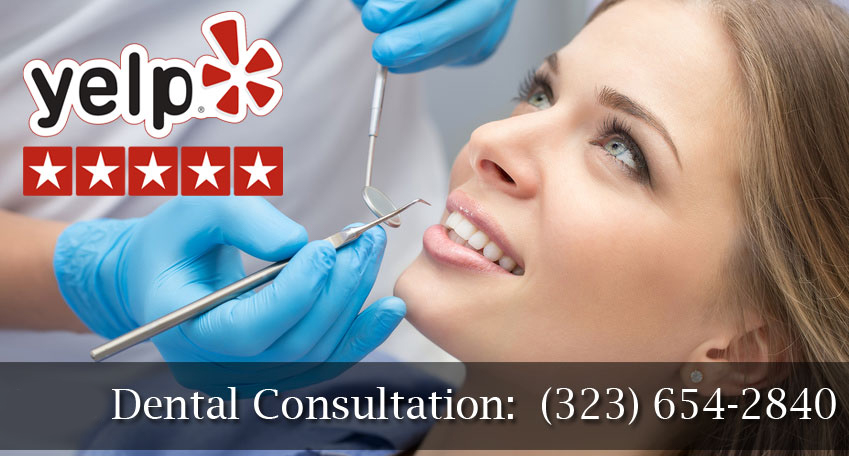If highly acidic substances, sweets and hot or cold liquids cause sudden and sharp pain, you have sensitive teeth. This can result from lifestyle habits, side effects of a dental condition and harsh products. The most common treatments recommended by your Los Angeles holistic dentist for minor sensitivity include:
• Crowns
• Veneers
• Implants
• Scaling and root planing
• Bridges
Toothpaste is often responsible for tooth sensitivity due to harsh ingredients to whiten teeth and remove stains. Mouthwash with ingredients to whiten teeth can cause tooth sensitivity as well.
Brushing Incorrectly
Over time, a toothbrush with hard bristles can result in enamel abrasion or the loss of enamel. If this causes sensitivity, Bruce Vafa DDS. recommends an extra soft toothbrush and no toothpaste until you have recovered.
Teeth Whitening
Over-the-counter products include gels and whitening strips you leave on for a maximum of 30 minutes. Although safe when used correctly, this is not an instant fix. Every time bleach comes into contact with your teeth peroxide penetrates your enamel. This can result in sensitivity in the nerve of your tooth. Microhardness decreases slightly after whitening but is generally restored quickly by minerals in your saliva.
If you use these treatments too often or leave them on for more than 30 minutes, you can experience tooth sensitivity. Your West Hollywood dentist recommends professional whitening treatments since less upkeep is necessary and they last longer. You have your treatment in our office and should see effective results quickly.
Highly Acidic Beverages and Foods
Consuming sugary beverages and foods with a high acidic content can result in sensitivity including:
• Fruit-flavored and citric fruit juices
• Ice cream, candy and starches
• Carbonated beverages and soft drinks containing sugar
• Ciders, energy drinks and sports drinks
• Acidic fruits including apples, oranges and lemons
Chewing Hard Objects
Excessively chewing hard objects including ice, fingernails and hard candy breaks down your enamel over time and can result in sensitive teeth.
Periodontal Disease
Periodontitis or periodontal disease is a serious oral disease causing permanent damage to your surrounding tissues, bones and gums. Common symptoms include inflammation, sensitive or loose teeth and bleeding.
Cavities
Cavities start as white chalky spots on the surface of your teeth. As time passes, they become black or dark brown. A common symptom you have a cavity forming is tooth sensitivity. If you have a filled cavity that is wearing down, exposed dentin can cause sensitivity to develop.
Cracked Teeth
A cracked tooth means there is a fracture on the crown of your tooth. In some instances, your cavity may extend beneath your gums. Cracks are generally associated with weak dental restorations, bruxism or dental injuries. You may not feel any pain from a fracture when you bite down. If you are sensitive to sweet, hot or cold substances, make an appointment with your Horth Hollywood dentist because you may have a cracked tooth.
Receding Gums
One of the more serious oral conditions is gum recession because the roots of your teeth are exposed to decay and infection resulting from poor brushing techniques, periodontal disease, bad tooth position or bruxism. Tooth sensitivity is generally the first sign.
Bruxism
Bruxism is when you grind and clench your teeth throughout the day or at night while you are sleeping. Excessive grinding will wear away your tooth enamel, dental restorations and dental crowns. Bruxism can cause the nerves in your teeth to become irritated and hypersensitive. The symptoms include flattened or chipped teeth, jaw pain, fractures and tooth sensitivity.
Dental Erosion
This is a chemical process resulting in the loss of underlying tissues and tooth enamel. The causes include excessively consuming beverages and food with high acidity and sugar, acid reflux, vomiting, poor oral hygiene and medical conditions resulting in sensitivity.





